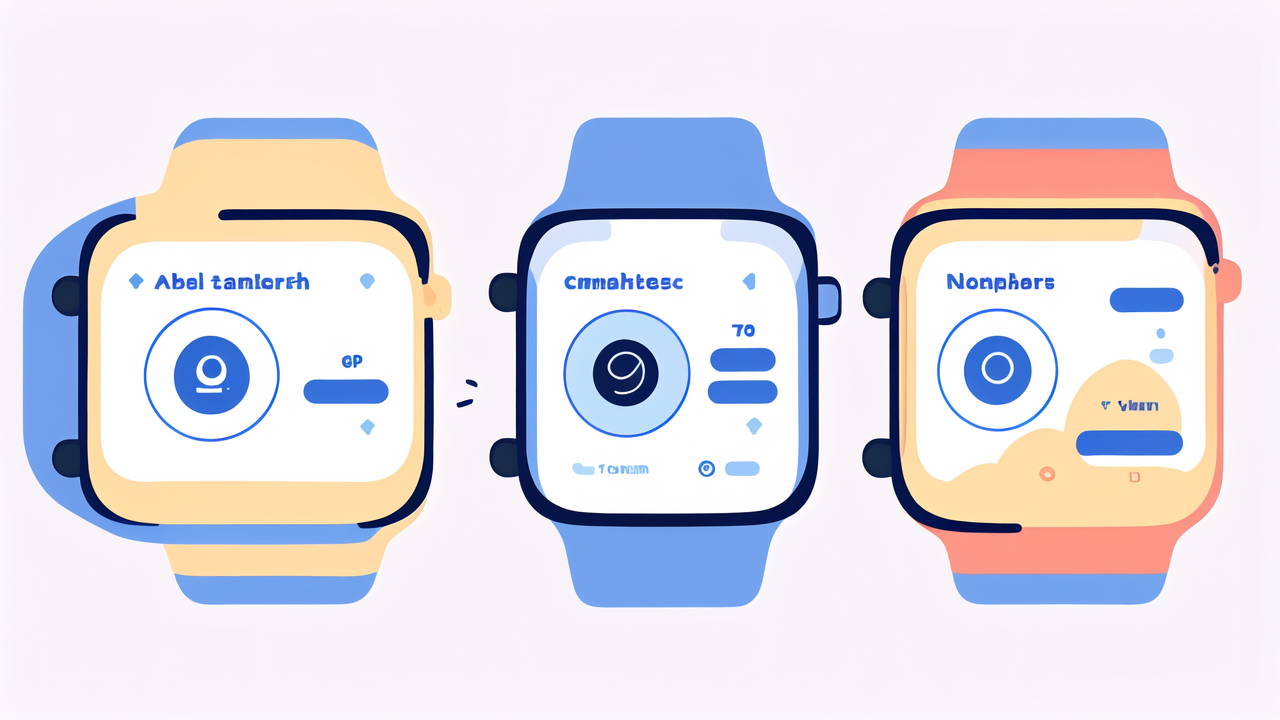Understanding the Growth of the Fitness Watch Market in the United States
The Rise of Smart Watches: Market Trends and Consumer Adoption
The fitness watch market has seen incredible growth in recent years. Smart watches have become a popular accessory for many Americans. These devices offer more than just telling time. They track health data, send notifications, and even make calls.

Consumer adoption of fitness watches has soared. People are more health-conscious now. They want to monitor their activity levels and overall well-being. Fitness watches provide an easy way to do this. The convenience factor has played a big role in their popularity.
Market trends show a steady increase in sales. More brands are entering the market. This competition drives innovation and lowers prices. As a result, fitness watches are becoming more accessible to a wider audience.
Key Players and Innovations in the Fitness Watch Arena
Several companies dominate the fitness watch market. Apple, Fitbit, and Garmin are some of the major players. Each brand offers unique features to attract consumers.
Apple's Apple Watch leads in smartwatch sales. It combines fitness tracking with smartphone features. Fitbit focuses on health and fitness tracking. Their devices are known for long battery life. Garmin targets athletes with specialized sports watches.
Innovations in this field are constant. New features include ECG monitoring, sleep tracking, and stress management. Some watches now offer blood oxygen level measurements. These advancements make fitness watches more like personal health assistants.
The Impact of Fitness Watches on the Wearable Tech Industry
Fitness watches have revolutionized the wearable tech industry. They've set new standards for what wearable devices can do. This has inspired innovation in other areas of wearable tech.
The success of fitness watches has attracted more investment in wearable tech. Companies are exploring new ways to integrate technology into everyday items. This includes smart clothing, smart jewelry, and even smart tattoos.
Fitness watches have also changed how we think about personal data. They've made health tracking a normal part of daily life. This shift has implications for healthcare, insurance, and privacy.
Advancements in Fitness Watch Technology: A Deep Dive
How Fitness Watches are Integrating AI and Machine Learning
Artificial Intelligence (AI) and Machine Learning (ML) are changing fitness watches. These technologies make watches smarter and more personalized. They can learn from user data and provide tailored insights.

AI helps fitness watches understand complex patterns in health data. It can detect irregularities in heart rhythm or sleep patterns. ML algorithms can predict future health trends based on past data. This helps users make informed decisions about their health.
Some fitness watches now offer AI-powered virtual coaches. These can provide real-time workout guidance and motivation. As AI and ML continue to advance, fitness watches will become even more intelligent and helpful.
The Role of Wearable Tech in Enhancing Fitness Regimens
Fitness watches play a crucial role in modern workout routines. They track various metrics like steps, calories burned, and heart rate. This data helps users set and achieve fitness goals.
Many fitness watches offer guided workouts. These can range from yoga to high-intensity interval training. The watch can track progress and provide feedback. This makes it like having a personal trainer on your wrist.
Wearable tech also promotes accountability. It reminds users to move and tracks their progress over time. This constant monitoring can be a powerful motivator for maintaining a fitness routine.
Fitness Watch Features and Their Influence on User Behavior
The features of fitness watches can significantly impact user behavior. Step counters encourage people to walk more. Heart rate monitors help users optimize their workouts. Sleep trackers promote better sleep habits.
Many watches now include stress management features. These can remind users to take deep breaths or meditate. Such features promote overall well-being, not just physical fitness.
Some fitness watches offer social features. Users can share achievements or compete with friends. This social aspect can increase motivation and make fitness more enjoyable.
The Future of Fitness Watches and Wearable Technology
Emerging Trends in Wearable Tech for Fitness Enthusiasts
The future of fitness watches looks exciting. One trend is the integration of more advanced health sensors. Future watches may be able to measure blood sugar levels or detect dehydration.

Another trend is the development of more specialized fitness watches. These might cater to specific sports or health conditions. For example, watches designed for swimmers or for managing chronic diseases.
We're also seeing a move towards more sustainable and eco-friendly wearables. This includes using recycled materials and designing for longer product life cycles.
The Potential of Smart Clothing: Blending Fashion and Fitness
Smart clothing represents the next frontier in wearable tech. These garments have sensors woven directly into the fabric. They can track a wide range of body metrics more accurately than wrist-worn devices.
Smart shirts can monitor heart rate, breathing, and muscle activity. Smart socks can analyze running form. Even smart yoga pants can guide users through poses. This technology opens up new possibilities for fitness tracking.
The challenge for smart clothing is balancing function with fashion. As the technology improves, we can expect to see more stylish and comfortable smart garments.
Ethical Considerations and the Privacy of Wearable Fitness Data
As fitness watches collect more personal data, privacy concerns grow. Questions arise about who owns this data and how it's used. There are worries about data breaches and unauthorized access to sensitive health information.
There's also the issue of data accuracy and reliability. Fitness watches aren't medical devices. Their readings can be inaccurate. This raises concerns about people making health decisions based on this data.
Another ethical consideration is the potential for discrimination. Could employers or insurers use fitness data to make decisions? This could lead to unfair treatment based on personal health data.
As wearable tech evolves, addressing these ethical and privacy concerns will be crucial. It will require cooperation between tech companies, policymakers, and consumers. The goal is to harness the benefits of this technology while protecting individual rights.




Leave a comment
This site is protected by hCaptcha and the hCaptcha Privacy Policy and Terms of Service apply.